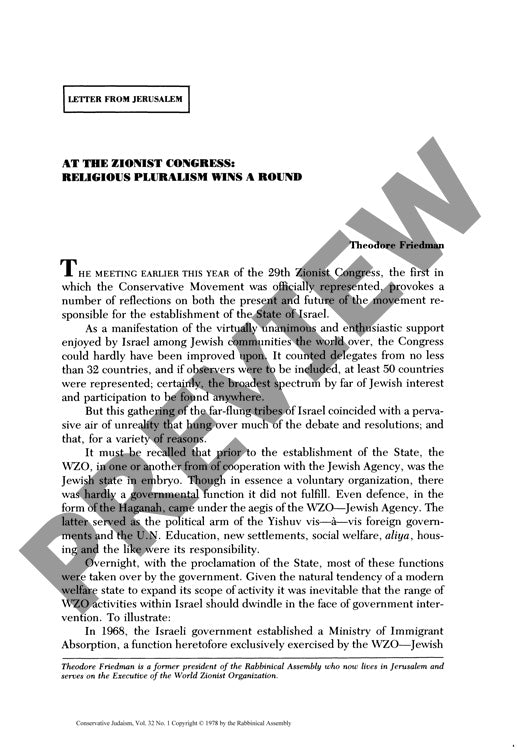At the Zionist Congress Religious Plural
Couldn't load pickup availability
Religious pluralism achieved a landmark breakthrough at the 29th Zionist Congress, where Reform and Conservative delegations secured unprecedented recognition within the World Zionist Organization (WZO). As the first Congress to include official Conservative Movement representation, this watershed moment crystallized mounting tensions over religious authority in both diaspora and Israeli contexts. Through participant observation of committee sessions, plenary debates, and voting procedures, coupled with analysis of resolutions and organizational structures, the research reveals a WZO grappling with existential challenges in the post-1948 era. Many of the organization's traditional functions have been absorbed by the Israeli government, creating bureaucratic redundancy and institutional confusion. The Congress's party-based system, mirroring Israeli political divisions, appears increasingly anachronistic given its limited practical relevance to diaspora communities. While the passage of a resolution demanding equal recognition for all Jewish religious movements represents a historic challenge to Orthodox monopoly, substantial legislative hurdles remain. Implementation of true religious pluralism likely requires fundamental reform of Israel's electoral system, as coalition dynamics currently enable minority religious parties to block progressive legislation.

More Information
-
Physical Description
-
Publication Information
Published 1978
ISBN
-
Publication Credits
Theodore Friedman

